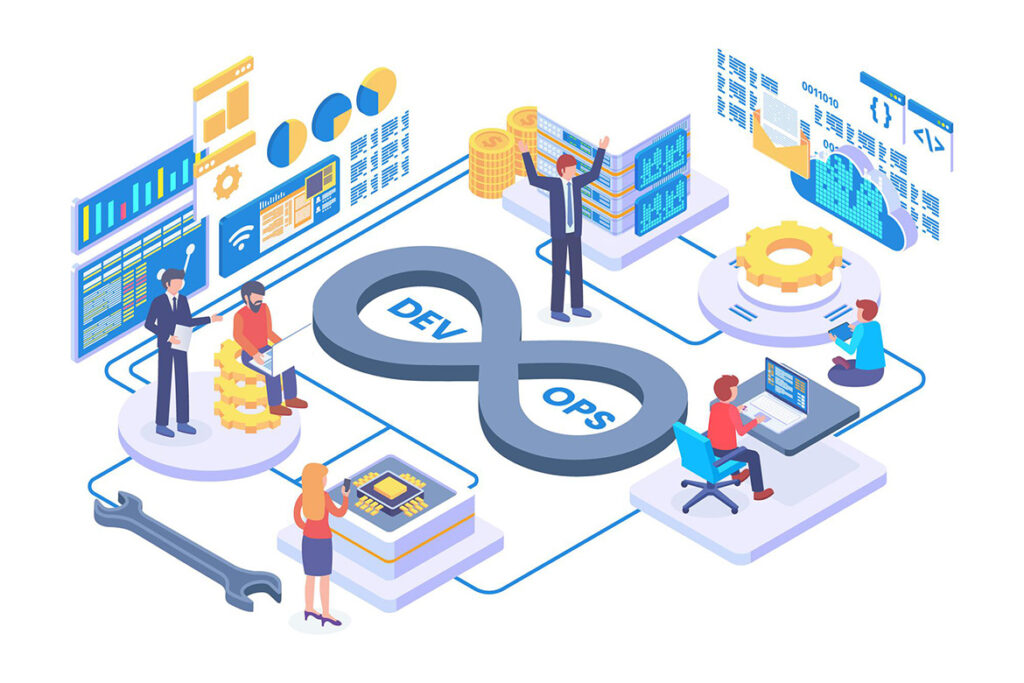Managed DevSecOps: Strengthening Security in the Age of Continuous Delivery
According to Gartner, Managed DevSecOps is becoming essential for organizations seeking to increase the security and efficiency of their software development process. Managed DevSecOps involves integrating security practices into every stage of the software development lifecycle, from planning to deployment, to identify and address security issues proactively before they become problems. By incorporating Managed DevSecOps into their operations, organizations can improve their development teams’ speed and agility while minimizing the risk of security breaches and other threats.
In today’s technology-driven world, security is becoming increasingly important. With cyber-attacks and data breaches becoming more frequent, businesses and organizations must focus on securing their data and applications. This is where Managed DevSecOps comes in. Managed DevSecOps is an approach to application development that integrates security into the entire software development lifecycle. It is gaining popularity in the computing world as a way to ensure safe and reliable software products.
What is Managed DevSecOps?
Managed DevSecOps combines three essential concepts: DevOps, Security, and Management. DevOps is a software development method emphasizing collaboration and communication between development and operations teams. Security protects systems and data from unauthorized access, use, disclosure, disruption, modification, or destruction. Management refers to the processes and tools used to manage software development, deployment, and maintenance.
Managed DevSecOps is an extension of the DevOps approach that integrates security into the entire software development lifecycle. It is a process that ensures safety is considered at every stage of development, from design to deployment and beyond. This approach is managed by a team of experts who work together to ensure the security of software products. Managed DevSecOps teams use automated tools and processes to monitor continuously and test applications for security vulnerabilities.

The Benefits of Managed DevSecOps
Managed DevSecOps benefits businesses and organizations that want to develop secure software products. Here are a few advantages of implementing DevSecOps:
Improved Security: By integrating security into the entire software development lifecycle, Managed DevSecOps ensures that security is considered at every stage. This approach can identify and address security vulnerabilities before they become a problem.
Faster Time-to-Market: It uses automated tools and processes to speed up the software development process. Software products can be brought to market faster than traditional development approaches.
Better Collaboration: This emphasizes collaboration and communication between development, operations, and security teams. This leads to better teamwork and more efficient development processes.
Lower Costs: Managed DevSecOps can reduce costs by identifying and addressing the related security vulnerabilities early in the software development lifecycle. This can prevent costly security breaches and reduce the cost of fixing vulnerabilities later in development. It ensures that software products are secure and reliable. This can lead to improved customer satisfaction.
The Popularity of Managed DevSecOps
Managed DevSecOps is gaining popularity in computing as businesses and organizations recognize the importance of security in software development. The popularity of Managed DevSecOps can be attributed to several factors. First, businesses and organizations are becoming more aware of the importance of security in software development. With the increasing occurrence of cyber-attacks and data breaches, security is now a must in development. It ensures that security is considered at every stage of development, from design to deployment and beyond.
Second, the rise of cloud computing and containerization has made software development more complex. It can help businesses and organizations navigate this complexity by using automated tools and processes to ensure security throughout development. Finally, this has become more accessible to businesses and organizations of all sizes. It services are available from many providers, making it easier for organizations to implement this approach without in-house expertise.
Conclusion
Hence, DevSecOps is vital because it integrates security into the entire software development lifecycle, from design to deployment and beyond. This approach ensures that security is considered at every stage of development and can identify and address security vulnerabilities before they become a problem. DevSecOps also improves collaboration between development, operations, and security teams, speeds up software development, reduces costs, and improves customer satisfaction. DevSecOps is essential for businesses and organizations developing secure and reliable software products. For more insightful blogs visit auxin.io






